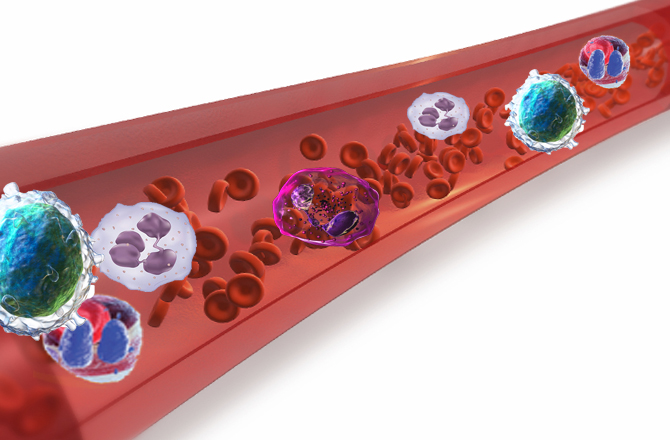

Acute myeloid leukemia (AML), biologically a heterogeneous set of diseases in which bone marrow makes abnormal, immature white blood cells called myeloblasts. Chromosomal aberrations are one of the cause of AML. An AML1 gene on chromosome 21 upon translocation fuses with an ETO gene on chromosome 8. Apart from translocation, inversions can also be seen. It is the most common myeloid disorder in adults. Normally a blood stem cell becomes a myeloid stem cell or a lymphoid stem cell, but in case of AML, the abnormal myeloblasts replace the normal stem cells. AML is categorized into two types based on its onset namely Childhood Acute Myeloid Leukemia and Adult Acute Myeloid Leukemia. WHO has categorized AML into various types based on chromosomal abnormalities. Apart from chromosomal abnormalities, cytogenetic mutations like c-Kit mutations, Ras mutations and PDGF mutations can also cause AML. The diagnostic criteria are the presence of at least 20% blasts in the bone marrow.
More